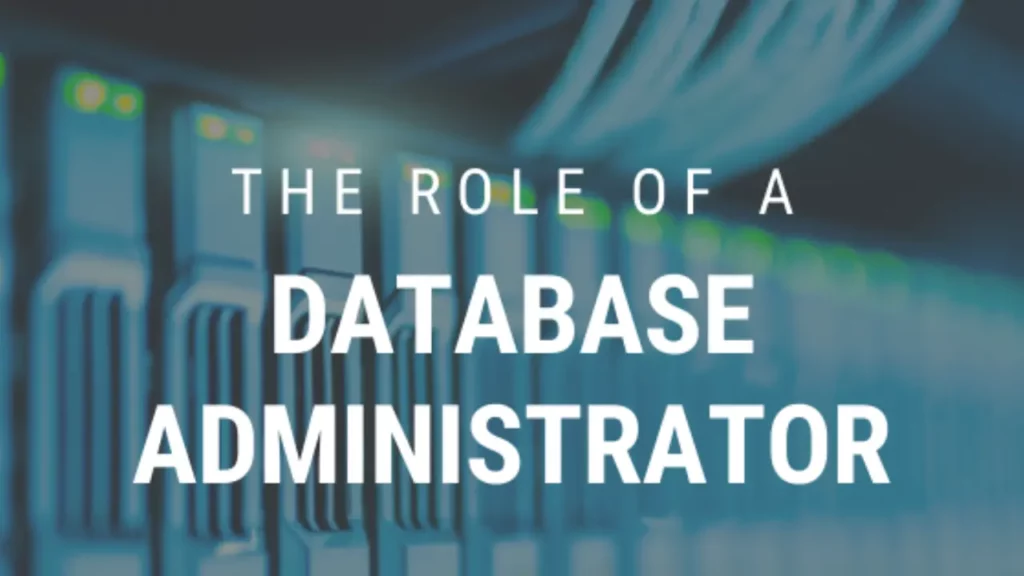Database Administrators: Who They Are and What They Do

A database is a collection of data that is organized and stored in a way that allows easy access, manipulation, and analysis. Moreover, databases are essential for many applications and businesses that rely on data to provide information, insights, and services. However, databases are not simple or static entities. In addition, they require constant maintenance, security, and optimization to ensure their functionality and performance. This is where database administrators (DBAs) come in.
What is a database administrator?
A database administrator (DBA) is a person who works with databases. Databases are collections of data that computers use. A DBA needs to know a lot about computers and business. DBAs are very important for businesses that use data. Data can help businesses do many things, such as: Making more money, Saving money, and understanding the market. But many businesses are moving their data to the cloud. Additionally, the cloud is a place where computers can share resources over the internet. This means that DBAs will be more common in the future.
What do database administrators do?

A database administrator may have a broad range of responsibilities related to the care and maintenance of a database system. Furthermore, the extent to which a database administrator completes these tasks can depend on the size of their department. Common tasks for a database administrator include:
- Evaluating database software purchases
- Ensuring that the organizational data is secure
- Identifying user’s needs to create and administer databases
- Configuring and designing the database models according to the organization’s requirements
- Resolving issues related to database accessibility and performance
- Tuning performance, backing up data, and providing training and support to users
- Installing upgrades or patches to fix bugs in the program
Different types of database administrators
A database administrator (DBA) is a person who works with databases. Databases are collections of data that computers use. Moreover, there are different kinds of DBAs who do different things
- System DBAs: They take care of the databases and the computers they run on. They know a lot about computers and how they work.
- Database architects: They plan how to make the databases for an organization. They make sure that the databases can do what the organization needs them to do.
- Application DBAs: They help with databases that are made for specific programs. They may write or fix programs that use the databases. They use special languages to talk to the databases.
- Data modelers: They make and keep data models. In addition, data models show how data are related to each other. Data models help make good databases.
- Data analysts: They look at and study data to help make databases better. Additionally, they may also make reports and give advice to DBAs.
- Data warehouse administrators: They manage databases that store a lot of old or combined data. Moreover, they make sure that the data is correct, clear, and easy to use for analysis.
- Cloud DBAs: They manage databases that are in the cloud. The cloud is a place where computers can share resources over the internet. In addition, they need to know about cloud computing, such as how to make it fast, reliable, and safe.
How do become a database administrator?
A database administrator (DBA) is a person who works with databases. Databases are collections of data that computers use. To become a DBA, you usually need to:
- Have a degree in computer science, information technology, or something similar. Some employers may accept a lower degree or work experience instead.
- Have certificates from companies or groups that make database systems, such as Oracle, Microsoft SQL Server, IBM DB2, or MySQL. Some employers may want or need you to have these certificates.
- Know how to use one or more languages that talk to databases, such as SQL, Java, Python, or C#.
- Know how to use different kinds of computers and systems, such as Windows, Linux, or Unix.
- In addition, Know how to make and plan databases well.
- Be able to fix and solve hard problems.
- Be careful and accurate with data.
- However, be able to talk and work well with other people.
- Be able to think and analyze well.
- Moreover, be able to manage your time and tasks well.
Challenges and opportunities for database administrators
A database administrator (DBA) is a person who works with databases. Databases are collections of data that computers use. Additionally, DBAs have many challenges and opportunities in their work. Some of the challenges are:
- Learning new things about databases and how they change
- Keeping data safe and following the rules
- Working with big and complicated databases that have different kinds of data and users
- Finding the best way to use database resources without wasting time or money
- Fixing data problems, such as wrong, missing, or repeated data
- Talking and working well with other people who use or make databases
Some of the opportunities are:
- Getting better at using new technologies, such as cloud computing, big data, artificial intelligence, or blockchain
- Making databases work faster and better
- Finding new ways to use data for business and analysis
- Getting higher positions or certificates in their career
- Helping to make database systems and standards better
If you want to know about Applications Developed in Java let’s delve into this article.
Conclusion
Database administrators are vital for ensuring the functionality and security of databases that store and process data for various purposes. Moreover, they perform a variety of tasks related to database maintenance, optimization, and development. In addition, they also work with other IT professionals to meet the needs of users and organizations. Furthermore, Database administrators can specialize in different areas depending on their interests and skills.
FAQs
Q1: What are the common tasks for a database administrator?
Common tasks for a database administrator include evaluating database software purchases, ensuring that the organizational data is secure, identifying user needs to create and administer databases, and configuring models according to the organization’s requirements.
Q2: What are the benefits of being a database administrator?
Some of the benefits of being a database administrator include having a high-demand and rewarding career, working on diverse and challenging projects, having opportunities for learning and growth, and earning a competitive salary.
Q3: What are the drawbacks of being a database administrator?
Some of the drawbacks of being a database administrator include having a high-stress and demanding job, working long and irregular hours, dealing with complex and sensitive data, and facing potential risks of data breaches or losses.
Q4: What are the best practices for database administration?
A database administrator (DBA) is a person who works with databases. Databases are collections of data that computers use. A DBA needs to do some things well to work with databases. Write down and follow the same steps for database work. Use tools and plans to do regular tasks automatically. Check and record what happens in the databases. Try and make sure that the data can be saved and used again.
Q5: What are the common tools and technologies used by database administrators?
Some of the common tools and technologies used by database administrators include database management systems (DBMS), such as Oracle, Microsoft SQL Server, IBM DB2, or MySQL, and programming languages.




